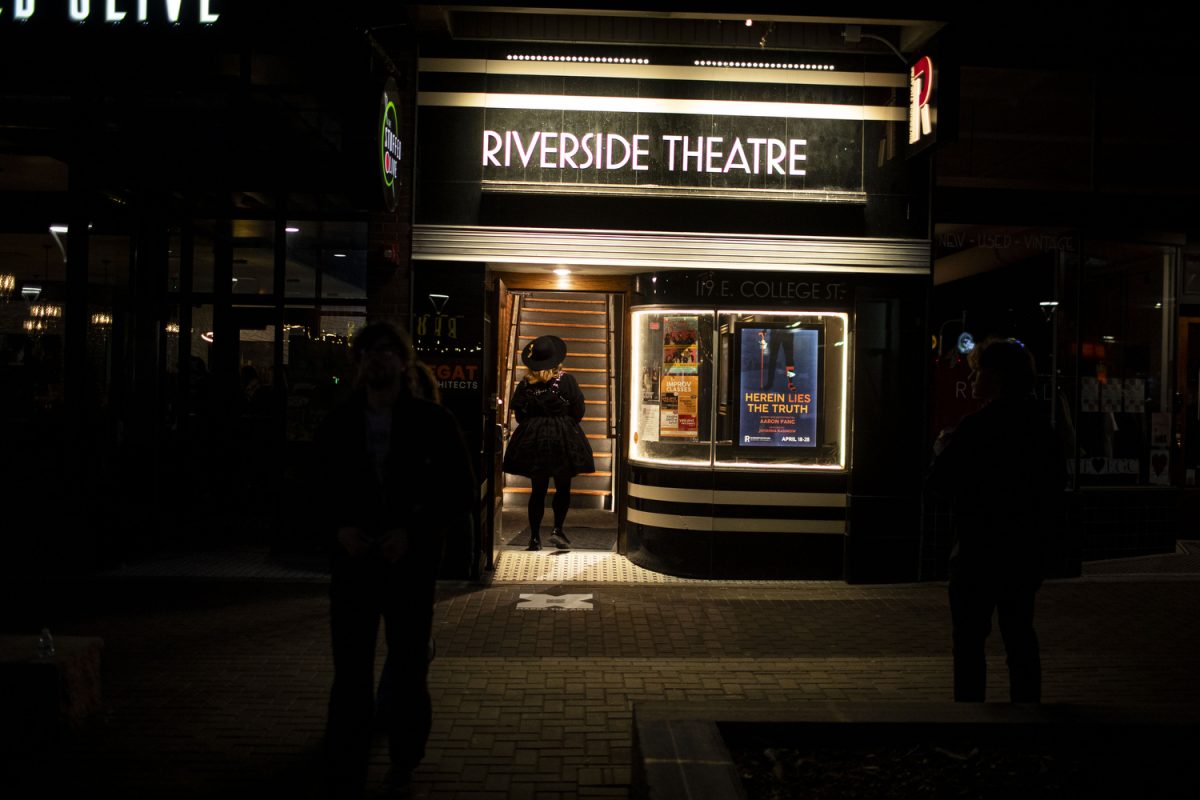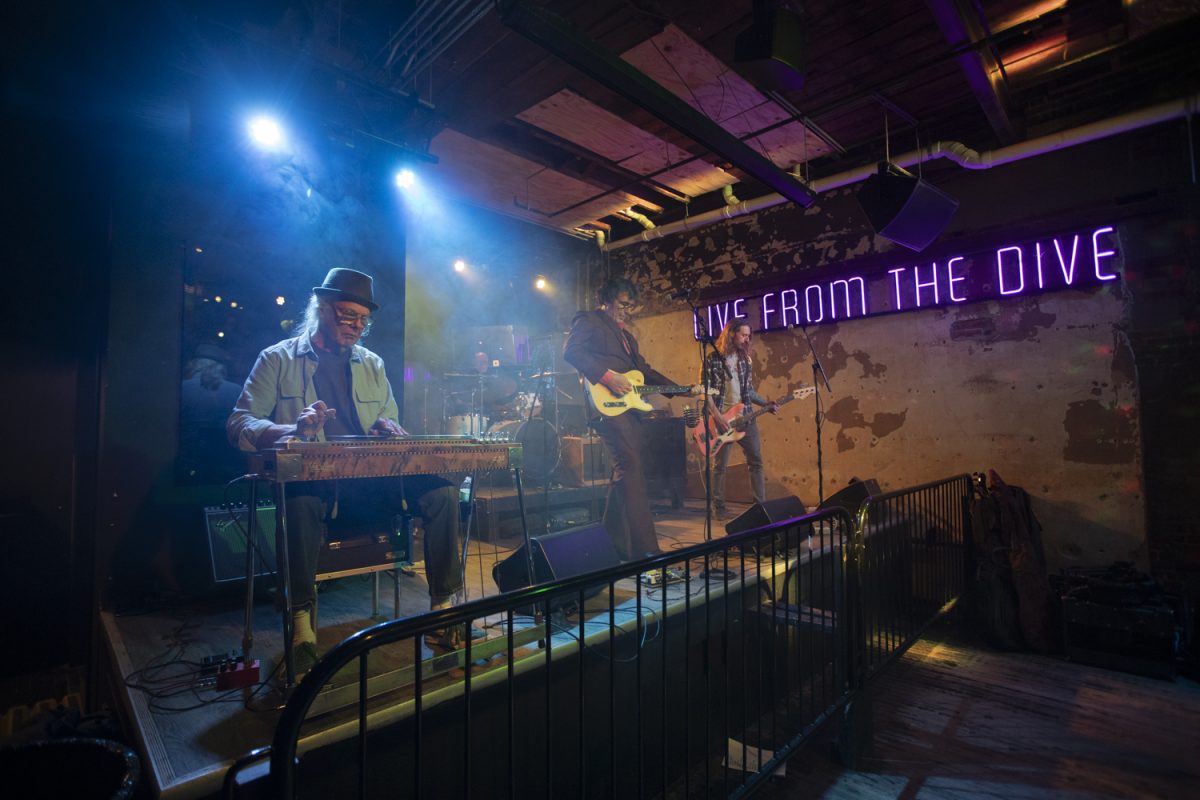By Girindra Selleck
[email protected]
Fresh off the release of her new album, Lieberman, Vanessa Carlton will perform at the Englert Theater, 221 E. Washington St., at 7 p.m. on Nov. 1.
Although you may know her for the ubiquitous 2001 hit “A Thousand Miles,” Carlton has gone through a series of transformations, both personal and artistic, to reach where she is now. Today, she makes atmospherically rich space-folk that transcends the genres of rock and pop music.
The Daily Iowan spoke with Carlton about these transformations, her new album, and her motivations as an artist.
DI: You’ve said the title of the album is based on your grandfather; what compelled you to choose this as your title and how is it representative of the songs and of you at this point in your career?
Carlton: I wanted to honor my mother’s side of the family by naming the album after my grandfather’s given name … not the one that he took on later in life. I guess you could say it’s a metaphor for going back to the simple truth. I also love a strong word like that to helm these songs.
DI: One of the things that struck me the most about the album is how effortlessly you synthesize numerous genres: pop, rock, folk, etc. What does musical “style” mean to you, and how do you prevent it from confining your musical instincts?
Carlton: I think when you get too conscious of style, it can get in the way of the muse. [Producer] Steve Osborne and I sat in a studio day after day in the rainy English countryside, and we just wove things together in a way that made us feel good. The parameters were very clear. All the artists who worked on this record, I wanted everyone to just be loyal to their instincts.
DI: A lot has changed since you first broke through with “A Thousand Miles,” and that is especially evident on your new album. The songs seem to have a level of complexity to them I hadn’t heard in your music before, at least not as fully realized as onLiberman. What were the primary motivators that pulled you in this new direction?
Carlton: I had officially left the major labels in 2009 and started to feel liberated from the expectation from my early pop success. I had to get real honest with myself and ask a lot of questions of myself that took some time to answer. Success is not measured by attention. I’ve thought a lot about this, and I feel the minute an artist starts getting super strategic about their project they start to lose their muse. I stopped caring about pleasing people outside of my creative scope once I started Rabbits. I look at Rabbits on the Run as my first true album. And it is in many ways. That was the precursor forLiberman.
DI: You’ve said the album is meant to be listened to through your headphones, and the soundscapes are quite incredible. How did you achieve these kinds of sonic atmospheres that blend your voice with the instrumentals, and, moreover, what was your motivation to sculpt them altogether?
Carlton: Steve Osborne is a genius. He is the wizard that creates music that feels like drugs in the body. I listen to some of his productions and I wonder … did I just take Ecstasy or am I just listening to a song. His sonic knowledge coupled with his particular aesthetic is a huge part of Liberman. My job was to pull it out of him and push him to explore. We made the album with no label. Just our managers helping us through. Every pop artist I’ve ever met, they listen to very different music on the side, and many of them secretly wish that they made the type of music that is their escape music. I was tired of being two different people.
DI: The album is receiving unanimously positive reviews, but I know that — although nice, at times — reviews aren’t all that important to many musicians. Can you describe your relationship to the critics? Do you read the reviews?
Carlton: I’ve read some reviews on this record. The positive reception certainly makes things easier. There are definitely some great music journalists that are out there. I just think more than ever the listener has to decide for themselves what a cool record is or not. I could just as easily have gotten shitty reviews if critics weren’t willing to look past what type of records I made in my early career. I really appreciate people taking the time to experience this new world with me.
DI: For your age [35], you’ve had an immense amount of experience in the music industry and quite a long career. Can you talk a bit about your journey from the early days up to now and how you feel the music industry as a whole has treated (or mistreated) you?
Carlton: I am no victim. I’ve made a lot of mistakes and have had many triumphs. It all adds up to the moment I’m in right now. That’s how life is. I think I was signed too early, and I wish I hadn’t started to release albums until I was ready, but I can’t regret the way it all went. I will say it has been tough being a woman at times in this industry. Harassment is something I’ve dealt with since I was 19. And I’ve handled it well, but it made me hardened and distrustful for many years. Many artists need to be soft-skinned and open in order to make something pure. I got back to that place eventually.
Liberman is available today in stores and on iTunes: https://itunes.apple.com/us/album/liberman/id1049425359
MUSIC
Vanessa Carlton
When: 7 p.m. Nov. 1
Where:Englert, 221 E. Washington
Admission: $25









